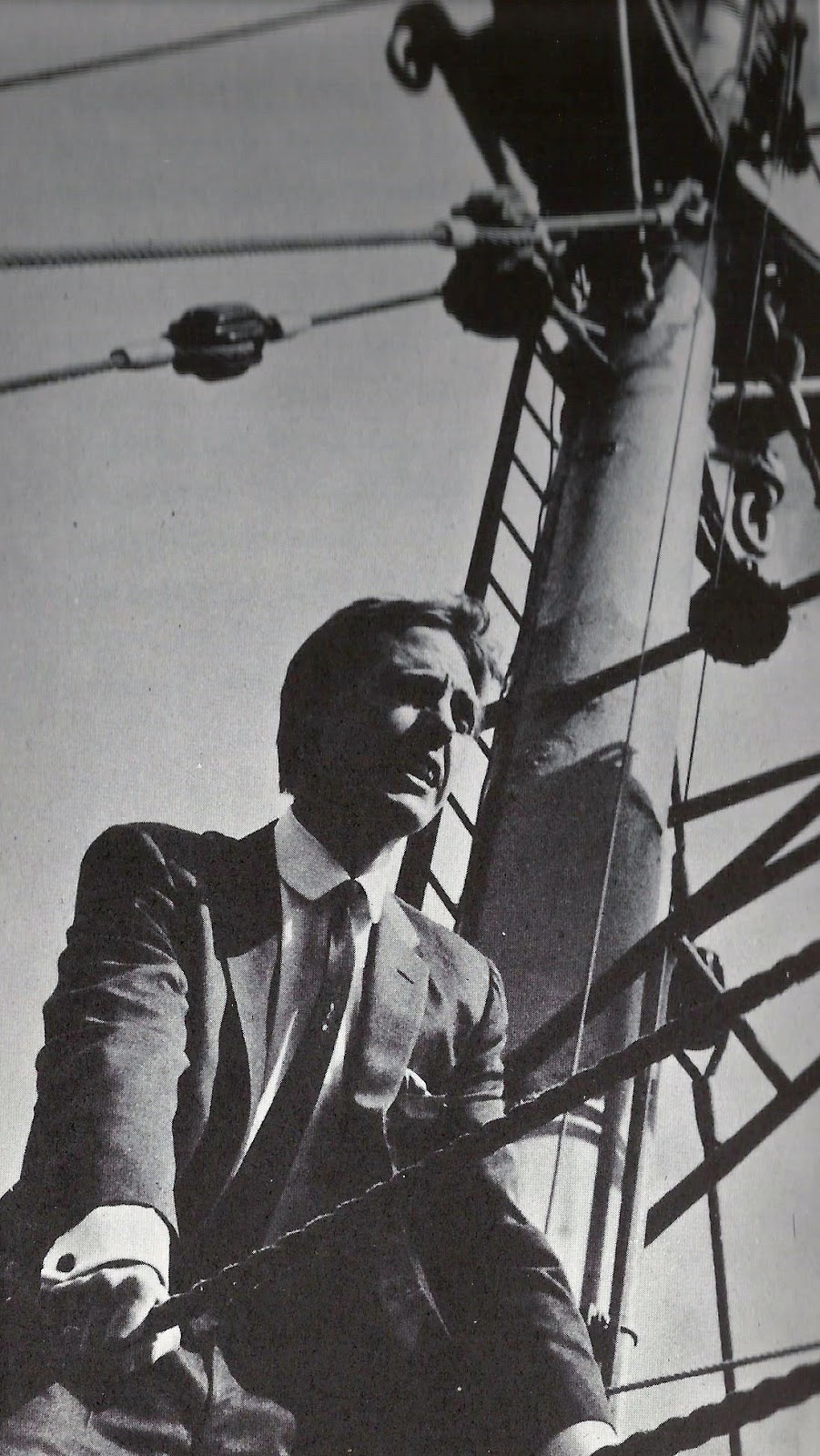 |
| Simon Dee on board the ship |
It was noon on Easter Saturday 28th March 1964, and the voice from the North Sea was that of Cyril Henty-Dodd, a 28-year-old former public schoolboy, failed actor and estate agent, soon to find fame under his showbiz name Simon Dee
Against all the odds, the new Radio Caroline had jumped through several legal loopholes and was on air, broadcasting loud and clear to large swathes of southern and eastern England from a ship anchored a few miles off the coast from Felixstowe and Harwich.
Simon Dee's announcement preceded DJ Chris Moore, who kicked things off by spinning the Rolling Stones’ hit Not Fade Away, followed by The Beatles and Can’t Buy Me Love.
The handful of nervous and excited people flapping around on board the ship and in its little studio had no idea how many listeners might be tuning in, or indeed if they could be heard at all. They certainly had no inkling of the incredible fuss they were creating at that moment.
Down in Kent a member of the Caroline team called Carl Conway had jumped into his car and was driving around like a maniac, tuning and re-tuning his car radio, testing how far and wide and how strongly the signal from the ship could be heard. He was ecstatic to hear the music loud and clear all over the place, including Thanet, Margate and Canterbury.
In London's West End, the Caroline founder, softly-spoken Irishman Ronan O’Rahilly, and a group of friends were clustered around a restaurant table wrestling with the dial of a transistor radio. Someone had the bright idea of going outside and here they suddenly picked up the signal, their shrieks of delight bringing the busy pavement to a near standstill. Pop history was being made.
Simon Dee was one of the few DJs actually on board over the Easter weekend, most of the others having auditioned for O’Rahilly in London and then taped shows which were sent out to the ship. Among these recruits was actor John Junkin, about to appear in the Beatles film A Hard Day’s Night.
It was a rag-bag team, many struggling to make their way in the entertainment industry and desperate for work. Chris Moore, for example, was a typical Chelsea bohemian figure, while Ed Moreno (real name Norman Cole) had diabetes and would defy doctors’ orders to join the ship later.
On land it was all excitement and celebration, but on the ship itself life was already getting tough. Simon Dee’s recollection of that first broadcast was of being “scared stiff.” He said his stomach was heaving in time to the heavy swell of the boat. “Talk about false gaiety – most of the time I was keeping close company with a bucket!”
But he was quick to add that the feeling of being a real pioneer helped him through and made it worth the suffering . . .
No comments:
Post a Comment